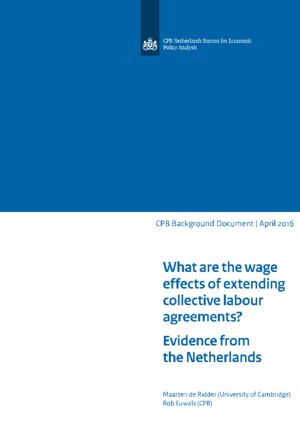What are the wage effects of extending collective labour agreements? Evidence from the Netherlands
Our analysis is an improvement over previous Dutch empirical research as we are able to distinguish between employees under industry-level CLA’s that either were or were not extended to all firms in a sector. We find that on average, similar employees in firms with an extended CLA earn around 1 to 2% more per hour worked than employees under an industry-level CLA that was not extended. The size of the impact is about 4% in 2006 and 2007 and declines to 0% in 2010 and 2011. The timing of the decline coincides with the Great Recession.
Our results are partly consistent with market power theory of unionization as wages are higher in economic good times and partly with coordination theory as wages are not higher in economic bad times (Villaneuva, 2015, Teulings and Hartog, 1998). The decline over time may furthermore be explained partly by economic trends such as globalization, technological progress and a decline in union membership, possibly leading to more flexible labour markets and lower negotiation power by unions. It is an open question whether our results may be interpreted as causal as the incidence of an extension may be non-random. An interesting direction for future research would be to use the timing of extensions for identification. An additional interesting direction of research is on the effect of extensions on employment.
Downloads
Authors

